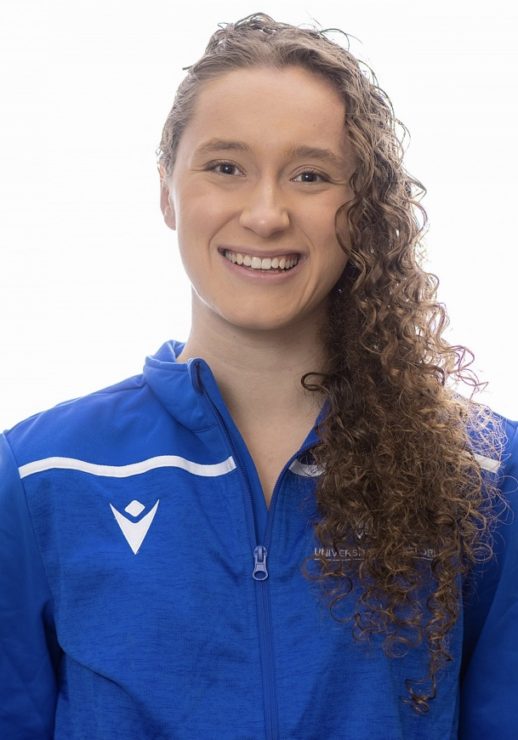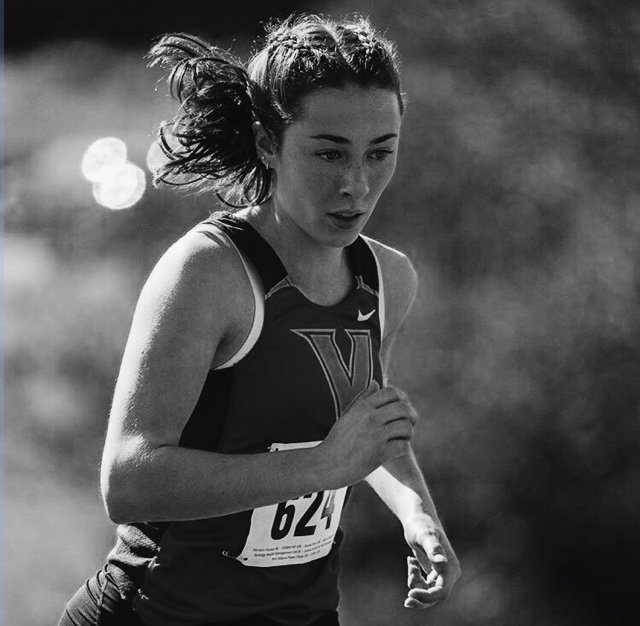
Student athletes face the challenges of shifting province-wide restrictions
As national competitions and races are cancelled due to the pandemic, many student athletes have had to shift their focus while they train for their sport. While some athletes are focussing on opportunities for growth, other non-varsity athletes are unable to train with their team due to province-wide age restrictions in sport.
Jamie Lee Hellard is a third-year history and communications student at UVic and member of the Vikes swim team. When the pandemic shut down Victoria one year ago, Hellard had just qualified for Olympic trials.
Though in-person practice was suspended at the beginning of the pandemic, Hellard continued to train on her own.
“When the pandemic started, I remember thinking, I’m gonna make the best of this and do what I can. It definitely got harder as it went on. And I realized that this wasn’t going to be a two-week or two-month thing,” she said.
Hellard’s long-term goals remain centred around varsity competitions, when they resume, although qualifying for Olympic trials was an added bonus.
With COVID-19 cases rising in fall 2020, both U Sports, the national body for Canadian university sports, and Canada West, the regional university sports association UVic belongs to, cancelled the national championships for many sports for 2020 and 2021. Affected sports include swimming, track and field, basketball, volleyball, rugby 7s, hockey, and wrestling.
For Georgia Ginther, an athlete on the cross country and track team as well as a fourth-year geography and business student as, the year without competitions was an opportunity for development. Without competitions, she has remained focussed on building mileage back up after coming back from injury.
“This year was basically a year to find room for growth,” said Ginther.

Hellard also found ways to stay motivated through the pandemic. “I think the opportunity to do something that I haven’t done before is what kind of drives me now. And that doesn’t necessarily need to be race-related anymore.”
Nick Clarke, director of Varsity Performance Sport, says that although it is disappointing there are no competitions this year, Vikes has worked to provide a fun, safe, purposeful, and supportive space for athletes.
Along with changes to their routines, student athletes have also navigated changing public health restrictions. In early December, province-wide restrictions prohibited sports for people 19 and older. In February a province-wide shift in restrictions allowed those under the age of 22 to participate in indoor and outdoor organized team sports. Varsity athletes of any age, even if they are over 22, can participate in training.
According to Clarke, the exemption for varsity sports was due in part to advocacy by B.C. athletic directors.
“As a team, B.C. universitie[s’] athletic directors, we brought a case forward to the B.C. government that varsity sport should also have a designated exemption similar to youth sport. After talks and evidence of our safe professional environment, [university] sport was provided an exemption at the same level as youth,” wrote Clarke in an email to the Martlet.
However, this restriction still limits some student-athletes on campus. Maggy Spence, a pitcher for UVic’s women’s softball team notes that the team was able to resume training in February following safety guidelines. However, since they are not a varsity team, team members over 21 were unable to return.
“This is really hard for our team because we are kind of a smaller team,” said Spence.
Spence notes that it was difficult to continue practice without all of her teammates.
Emma Edmonds, a previous member of the track and cross country team and current student in political science and professional writing, knows the difficulties of not being able to train with a team. In September, she remained on the east coast in response to the rising COVID-19 numbers and missed the time trials. Though she has now returned to Victoria, she is unable to train with the varsity team even though she is over the age of 22 because she was unable to attend time trials in the fall.
Edmonds has continued to work on her base training through the pandemic. She says she might continue to run competitively during her graduate degree, and overall as a lifestyle.
The pandemic has made this a difficult year for many, and student athletes have had to face particular challenges with shifting restrictions. Not only have training and competition looked different this year for many athletes, team-building has changed too.
Ginther notes that because of restrictions, building connections with first-year athletes has taken longer than it did in previous racing seasons since the team hasn’t been exposed to team-building activities. She notes, though, the team has been able to build connections even through pandemic restrictions.
Hellard says that her teammates have been a huge motivator for her through the pandemic.
“My face lights up everyday just going to practice and being able to see someone,” she said. “I think in some ways it’s brought the team together. Usually I feel like we’re brought together around a common goal, but this year, it was just a common experience.”
Hellard says that through the pandemic her teammates have been an amazing support system.
“The other thing that’s kind of kept my love for everything alive this year has definitely been my teammates.”






